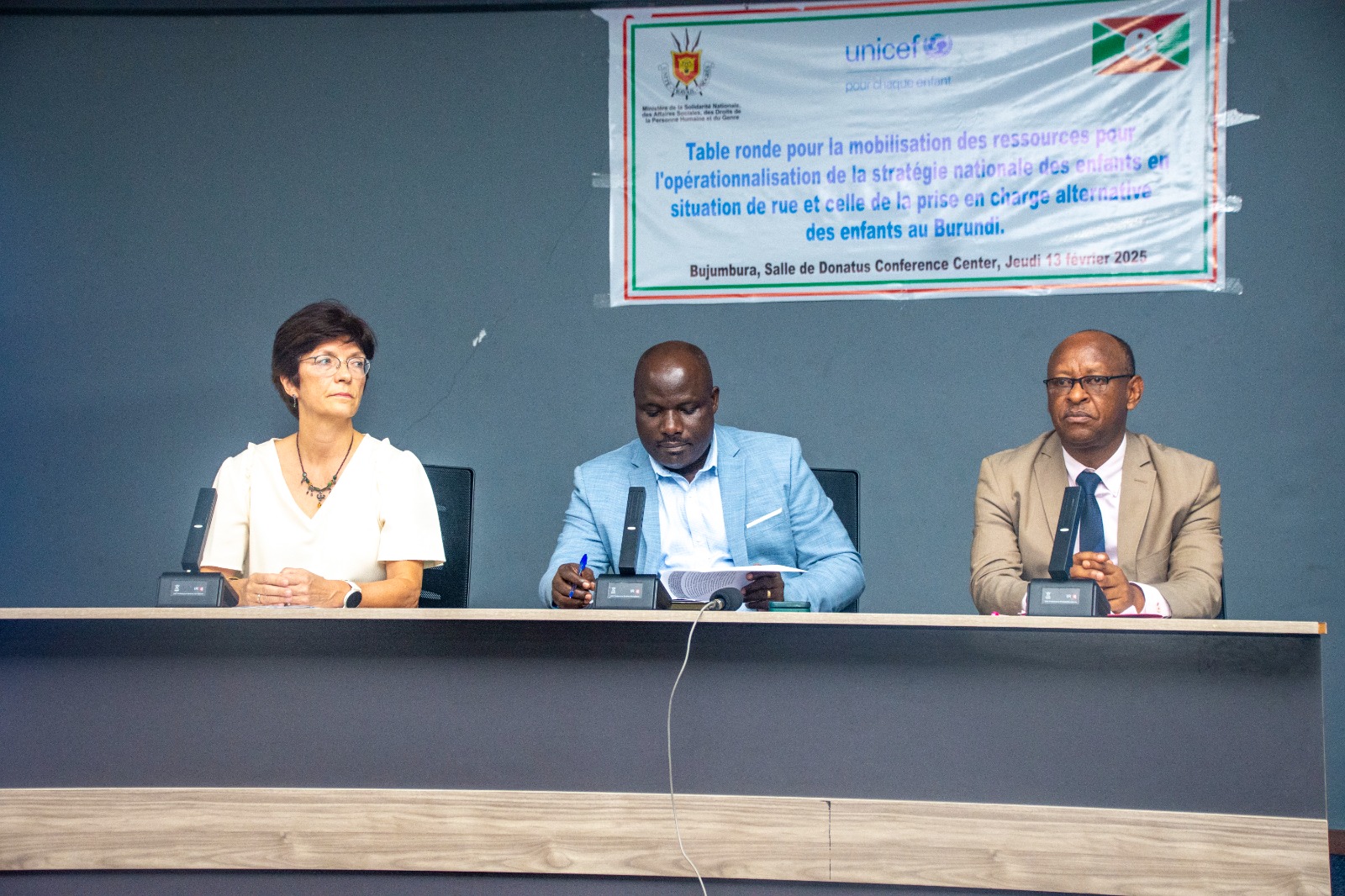BUJULBURA, February 14th (ABP) – The Ministry of National Solidarity, Social Affairs, Human Rights and Gender, in collaboration with UNICEF, organized on Thursday, February 13, 2025, a round table of technical and financial partners on the phenomenon of children in street situations and adult begging.
The permanent secretary at the ministry in charge of human rights, Pontien Hatungimana indicated that the round table aimed to share concrete actions to be taken to reduce and eradicate the phenomenon of children in street situations and adult begging.
He indicated that the phenomenon of street children or begging is a reality in Burundi. And everyone can testify to this sad situation. According to him, this phenomenon seems to be growing over time to the point that children are now found in almost all urban centers in the country. This phenomenon of children in street situations initially occurred in the cities of Bujumbura, Gitega and Ngozi, Hatungimana said. But currently, he added, it has spread to almost all provincial headquarters.
The child’s place is not on the street, Hatungimana underscored. Their place must be in the family and at school. A family where they get love and affection, a framework that provides them with the protection they need so much, he said.
Unfortunately, Hatungimana said, some initiatives taken by some organizations in a voluntary manner, to date, have not provided satisfactory solutions. And the phenomenon has continued, he emphasizes, because today there are a fairly large number of adult street people, which makes the problem even more worrying and more complex.
“Although we are witnessing situations where actions are carried out on the ground, these have not produced significant results, but have rather revealed a certain competition amid stakeholders,” Hatungimana noted.
Given the scale of the problem and the fumbling of certain actors in resolving this problem, he indicated that the government of Burundi has taken its responsibilities and defined the framework through which solutions should be considered. This is the national strategy for the prevention of the phenomenon of children in street situations and adult beggars as well as their community reintegration and that relating to the alternative care of children in Burundi. This thus provides guidelines for coordinated and harmonized approaches. This is with the aim of bringing children to a normal life, a life full of hope, a life that prepares them to be responsible adults in the community, Hatungimana said.
As for adult beggars, he said, the reasons are multiple and can be social, economic and financial. These include widows, young single mothers, and unsuccessful rural exodus. This practice of begging, according to him, has become a real business following the compassion of people, which results in the increase in begging cases.
In addition, Mr. Hatungimana also pointed out to the technical and financial partners of the government of Burundi that it is high time to make commitments to actively participate in the process of withdrawal and reintegration into families and communities of children in street situations, children deprived of family care, and adult beggars. To achieve this, he said, it takes efforts and synergy amongst different actors. These include the administration, the various state actors and stakeholders in the field.
He also called on partners to understand the government’s commitment to address this challenge. He recommended that they lend them a helping hand to definitively eradicate this phenomenon in Burundi, by ensuring sustainable community reintegration for these vulnerable groups.
The UNICEF representative to Burundi, France Bégin, indicated that the strategy on children in street situations aims to ensure that children are protected from the risks of violence, live in a family environment and have access to basic social and protection services.
As for the alternative care strategy, according to her, the latter aims to provide children deprived of parental care alternative care adapted to their needs and a process of reunification and family and community reintegration.
As a result, she indicated that with the contribution of all the partners who participated in the round table and others to be mobilized, by 2030, all children in Burundi will be able to see their living environment improve and fully flourish.
According to her, with the support of UNICEF, the ministry in charge of national solidarity will continue to work on the deployment of the child protection case management system as well as the strengthening of social workers and child protection committees. This constitutes three essential elements to improve the identification and support of vulnerable children, including children in street situations, France Begin said.
The development of alternative care, for her, will be able to complement these efforts, by guaranteeing each child deprived of parental care, alternative protection that respects international standards. Despite the challenges, the UNICEF representative to Burundi called on other partners to commit together in the short, medium and long term to respond to this call from the Government of Burundi in order to offer children the chance to grow and flourish in complete safety.

